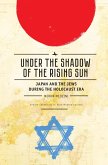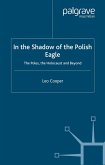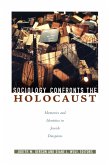This volume is the first ever study to address Jewish forced labor in Poland's General Government during the Holocaust. The study presents German economic policy on the occupied territories, discussing Germany's misappropriation and misuse of available resources-particularly human resources and their inhuman treatment-and how this policy ultimately led to the downfall of the Nazi regime. This fascinating study sheds a light on the mutual dependence of economics and warfare during one of the most difficult periods in human history.
Dieser Download kann aus rechtlichen Gründen nur mit Rechnungsadresse in A, D ausgeliefert werden.









